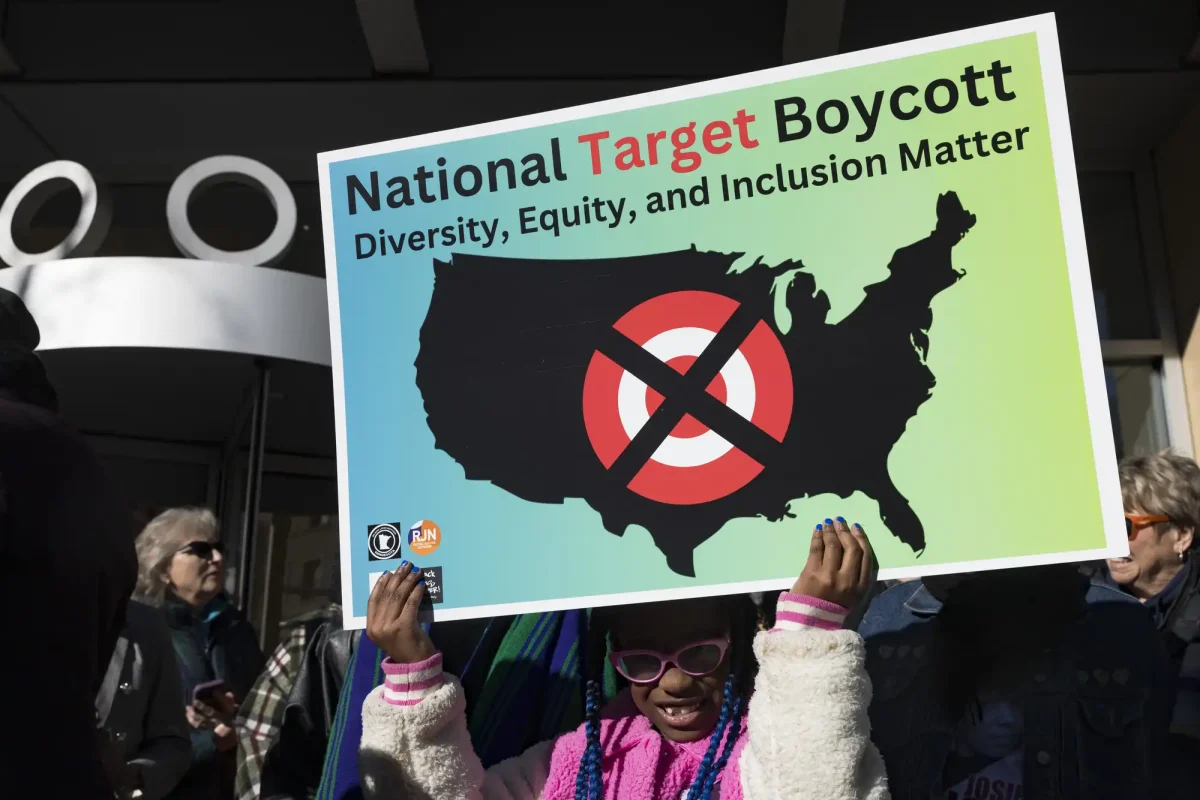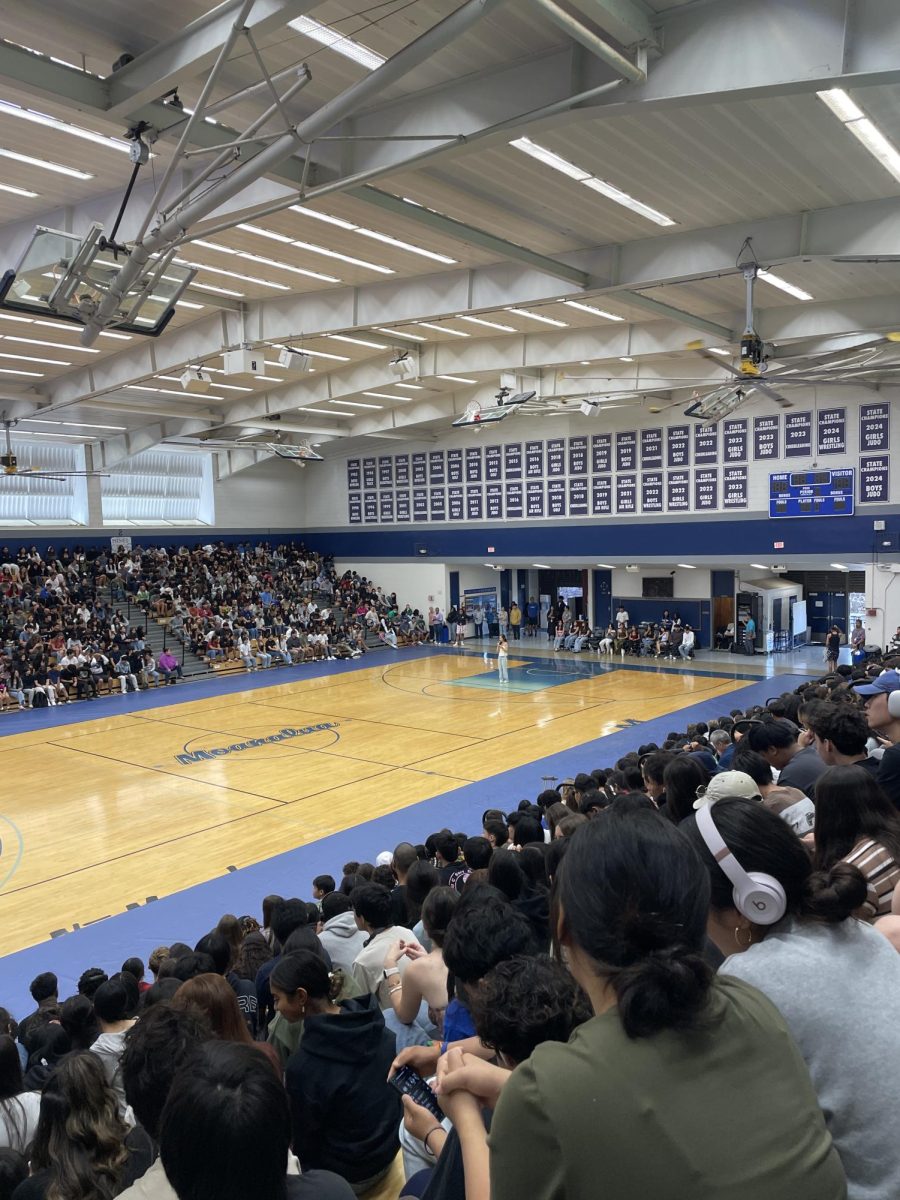My friends and I have this inside joke: when we bring up an issue or event that doesn’t personally concern us, we say, “It’s not my lived experience.” It is an absurd and narcissistic response to an issue, and was born out of ignorance, war, and severed friendships. It all began when the world shifted its attention to the latest wave to conflict between Israel and Palestine.
When war fired up in October of 2024, many of my friends invested a lot of time researching and advocating against the genocide of Palestinians. They felt a deep despair watching human rights violations taking place, even when it took place on the other side of the world. It was unlike anything they had ever seen. Silence was not an option. They wanted to be heard, and they wanted to rally others to speak out about it.
I’m lucky enough to have a circle of friends who care: friends who love history, friends who watch the news, friends who understand the importance of politics and do their part. Not only do they act on their personal responsibilities, but they are also willing to educate others and push them to action. On many occasions, they have pushed me to attend protests, contact my representatives, and learn about issues I would not have otherwise gone out of my way to do, even as someone with prior interest in politics.
For many of our peers, though, this is not the case.
Friends of friends and their connections chose to distance themselves from this issue, as they so often do. They exercised willful ignorance, which resulted in arguments between them and my activist friends. These were petty, fallacy-riddled squabbles that never tackled or explored the topic meaningfully. My friends would attempt to convey the importance of following current events and taking a stance on them. Their efforts were met with apathy or ridicule. One particular individual was much more defensive of his right to stay disengaged, going as far as to ask an AI chatbot to write an essay supporting himself. Dumbfounded by such behavior, my friend asked the individual how he could be so calloused to active injustice when he himself was a member of a marginalized group. That’s when he posited that the reason he didn’t care was that, “It’s not my lived experience.” That was the nail in the coffin to his argument, AI fact-checked and all. This revealed the core mindset that seemed to be more than an isolated incident these days: It doesn’t affect me, so why should I care?
America prides itself on the virtue of individualism, where everyone has a right to set themselves apart and should do everything they can to pursue personal success. This is our freedom, our “life, liberty, and pursuit of happiness.” A message taken to heart and accepted with a cost: Americans do not believe in society. They don’t feel obliged to lift one another up, so much as they’re driven to step over one another to get their way. In fact, I would be so bold as to think that Americans never truly wanted to participate in a society.
Imagine the American Dream: a large single-family home, walled off from its neighbors, where the resident family can coop up, away from everyone around them. Americans only know two places: home and work. The “death of third places” is a phenomenon that has risen in prominence over the past decade as people became more aware of the alienating nature of American culture. People want nice homes not for their convenience (they tend to be zoned far away from any commercial districts) but because they accept the fact that this is where they will be spending most of their time, so it might as well be as comfortable as possible. This prevents people from making meaningful community with their neighbors and makes them more detached from the area in which they live. This is only made worse by a car-centric culture, where commutes are long and require no real connection to the world around them.
Besides the way Americans choose to live, their distaste for altruism can also be seen in how they talk about taxes. Many Americans view taxes as “theft,” even when they understand that this money is given back to them through public services. Furthermore, many Americans are against welfare and other social assistance programs because they claim that their money shouldn’t be spent on anyone besides themselves. Many parts of Europe, which exhibit much higher tax rates, do not have the same complaints get thrown around from their citizens; in fact, many Europeans say they’re happy to pay higher taxes if it means they get free healthcare, cheap infrastructure, and better overall quality of life.
For better or worse, all of this goes to show why a military draft wouldn’t work in America. Most Americans are not willing to give their lives to the state, no matter how much they claim to love their country. Sure, we fulfill our military needs through voluntary enlistment, but this has less to do with how patriotic our citizens are and more to do with the economic incentives we offer to military personnel. America has by far the most expensive healthcare and education in the world, and our cost of living–grocery, housing–has been spiraling out of hand too.
And no matter how xenophobic Americans might become, they’ll never give up their demand for cheap foreign goods. The label “Made in America” is simply not important enough to anyone to pay a higher price for.
Our stark capitalist mindset is exactly what teaches people that “you can do anything if you work hard enough,” and in many cases, “working hard enough” means cheating, lying, stealing, and doing anything you can to get ahead. The US is home to most of the richest people in the world, and the richest people in the world are not those who cooperate, but are those who exploit. Ironically, this makes our radically individualistic country also radically globalist.
A foreign perspective on this issue may help put it in context. For a decade now, I have been close friends with a woman who was born–and lived the first 16 years of her life–in the former USSR. I remember telling her about this call I had with my dad, who currently lives in Kyiv, where he told me that if it weren’t for me and my older sister, he would have gone out to fight in the ongoing war. That stuck with me, and I needed to get it off my chest with someone I could trust, someone wiser and more experienced with the circumstances under which my home country finds itself. I knew my dad was a patriot, but I never realized how deep it ran. That’s when she told me about convictions, more specifically, their absence in American culture. She talked about the way people she used to know viewed their state as being something worth genuine sacrifice. People here don’t tend to die for their values.
To the modern American, there’s no greater conviction than their own wellbeing.
The last time America has experienced civic nationalism like this was during our very own Revolution. A blip in time during which people were so committed to their colonial identity apart from England that they were willing to die for the cause of independence. Now, that attitude has fizzled out as Americans have grown comfortable in their own luxurious bubbles. People would much rather disengage, as evidenced by our embarrassingly low voter turnout and general disinterest in politics.
There’s a lot of value that gets lost in the absence of a community-minded culture, but there is a silver lining: individualism deters fascism.
We are living through very politically unstable times, and have begun to see our government dipping their toes into authoritarianism. The current administration has taken a lot of liberty with executive actions, many of which have been challenged on their constitutionality, and the response has been a delegitimization of the courts’ powers–a dismantling of checks and balances. As mentioned, Americans don’t care all too much about anything that doesn’t affect them, and fortunately, the actions taken by our president are already starting to be felt all over the country: massive layoffs, rising prices, and discriminatory policies are already inciting waves of voter regret. If there’s anything that Americans believe in, it’s their right to convenience. That worldview wasn’t present in 1930s Germany; people didn’t care if their rights and privacy were impeded upon in order to benefit the regime. They were staunch supporters of their ideology and were willing to make any sacrifice in its name. Americans don’t like sacrifices.
I admit I’ve made a lot of generalizations here. Of course, not every American is self-centered, but it’s a general trend that can be observed in the way our culture differs to the culture of many other parts of the world. But even for people who care about community, there’s still an underlying truth: as a person of many strong beliefs and an inclination to help people, I will fight for a cause, but I can’t see myself dying for it. It isn’t the way I was raised. Without society. American.
References:
AlibsWrites. (2023, January 26). The Death of Third Places and the Evolution of Communities. ILLUMINATION. https://medium.com/illumination/the-death-of-third-places-and-the-evolution-of-communities-5bbffc01c5e
Cohan, P. (2025, March 12). These Trump Voters Say They Feel Deceived. Inc. https://www.inc.com/peter-cohan/these-trump-voters-say-they-feel-deceived/9115927
Jones, Jeffrey (2023, October 25). U.S. Attention to Political News Slips Back to Typical Levels. Gallup. https://news.gallup.com/poll/513128/attention-political-news-slips-back-typical-levels.aspx
Meik Wiking. (2016). Why Danes Happily Pay High Rates of Taxes. US News & World Report; U.S. News & World Report. https://www.usnews.com/news/best-countries/articles/2016-01-20/why-danes-happily-pay-high-rates-of-taxes
Phillips Aleks (2023, November 10). Americans don’t want to fight for their country anymore. Newsweek. https://www.newsweek.com/american-military-recruitment-problems-public-apathy-1842449
Marquez, A. (2025, February 9). J.D. Vance and Elon Musk question judges’ authority over Trump. NBC News. https://www.nbcnews.com/politics/white-house/legal-experts-constitutional-crisis-vance-musk-judicial-rulings-trump-rcna191387
Rakich, N., Yang, T., Potts, M., & Morris, G. E. (2025, February 13). What do Americans think about Trump’s tariffs? ABC News. https://abcnews.go.com/538/americans-trumps-tariffs/story?id=118796434
Smith-Schoenwalder, Cecelia. (2025, March 11). How Many of Trump’s Executive Orders Are Being Challenged? MSN. https://www.msn.com/en-us/news/politics/how-many-of-trumps-executive-orders-are-being-challenged/ar-AA1ADIgj

![A sticker reading “F[***] FASCISTS” displayed on a private property sign. This is one in a series of small, isolated acts of anonymous protest around Moanalua High School’s campus in response to recent political events. It has become a muse for students, met with both support and ridicule.](https://nahokunews.com/wp-content/uploads/2025/03/private-property-1200x673.png)






